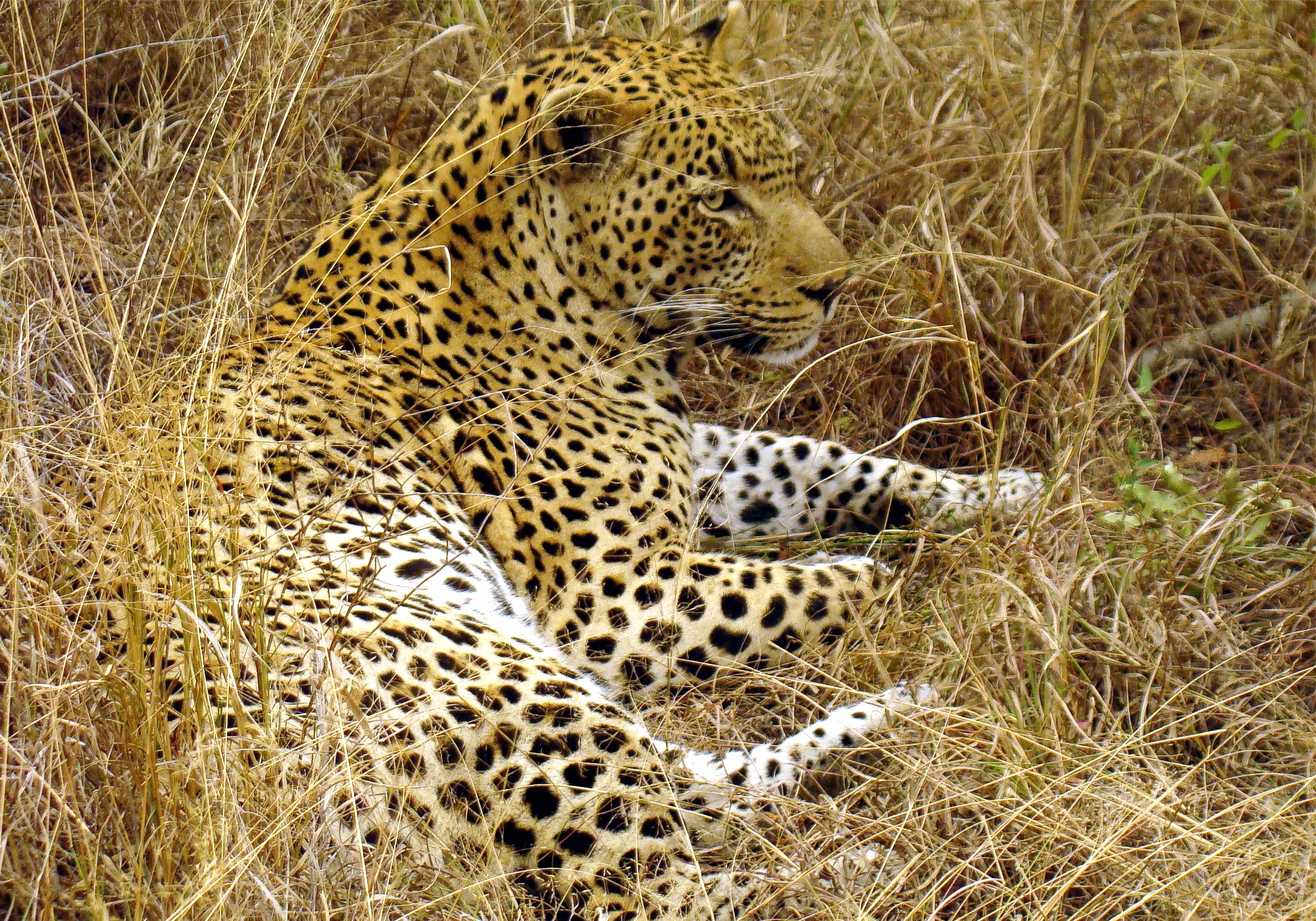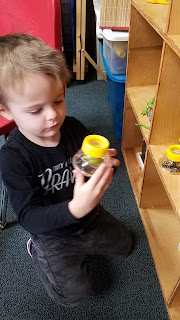Animal Camouflage
We discussed what camouflage is: it is a special adaptation that allows an
animal to blend into its surroundings.
We discussed two main reasons why this would be very important and useful:
1) to protect an animal from other animals (predators)
2) to help an animal find food (sometimes - prey)
We talked about the difference between predators (hunters) and prey (animals hunted).
Our words of the week were: Camouflage and Predator/Prey
Our words of the week were: Camouflage and Predator/Prey
Next, we looked at the four different types of camouflage:
Four Types of Camouflage
BLENDING Camouflage
When the colors of the animal blend into its surrounding's colors.
Examples: white-tailed ptarmigan, arctic bunny, flounder,
Image Example: polar bear
PATTERN Camouflage
When an animal's spots, stripes and markings make the outline of the body hard to see.
Examples: tiger, zebra, leopard, leopard frog, copperhead snake
Image Example: Leopard

DISGUISE Camouflage
When an animal can hide in plain sight by looking just like an object in its surroundings.
Examples: praying mantis, leaf-tailed gecko, walking stick
Image Example: leaf katydid

MIMICRY
When an animal's looks or behavior imitates that of a harmful or distasteful animal.
Examples: king snake, longhorn beetle, the viceroy butterfly
Image Example:
In Centers today, we explored the room and found several insects and animals that used camouflage.
We sorted animals by their color to see how blending into your surrounding can help hide you.
We looked at animals in our viewfinder that use camouflage like lions, cheetahs, and owls.
We played in our snow with polar bears and other arctic animals that blend into the white environment. In addition to our camouflage centers, we had several other science centers to explore.
Books we enjoyed during the week:




























No comments:
Post a Comment
Note: Only a member of this blog may post a comment.